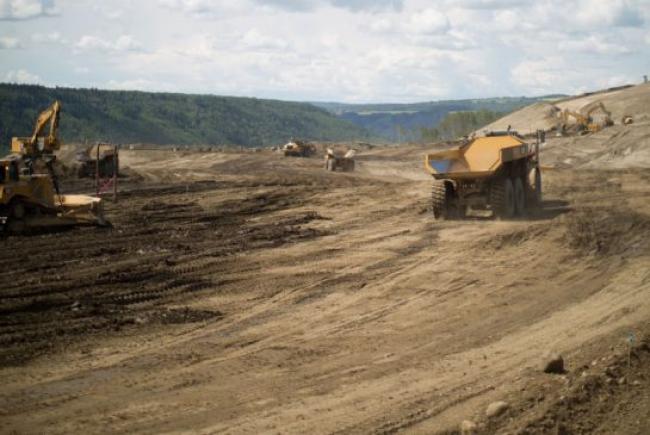Articles Menu

A judge has dealt a blow to two northern British Columbia First Nations who hoped to challenge the province’s approval of the $9-billion Site C dam.
West Moberly First Nations and Prophet River First Nation have launched several challenges in both provincial and federal courts against a project that would flood nearly 10,000 hectares of their traditional territories. Both argued the province failed to consult them as required.
But in a ruling Monday morning Supreme Court of B.C. judge Robert Sewell — who previously ruled against them in another Site C case — said it was the First Nations who had stymied the consultation process, not B.C.
“The process of consultation was frustrated by the positions taken by the [First Nations'] refusal to engage in consultation within a reasonable timeframe,” wrote Sewell in his ruling. “I am satisfied that the Province was prepared to engage in meaningful consultation.”
BC Hydro CEO Jessica McDonald posted news of the decision on her Twitter account on Monday, tweeting, “This just in: BC Supreme Court dismisses challenge to provincial permits issued for #SiteC.”
In an earlier Site C statement, the Crown corporation said it’s been “consulting and engaging with Aboriginal groups about Site C since 2007” and that BC Hydro has reached agreements with 11 Aboriginal groups.
“Only two First Nations remain opposed to the project in court,” the agency said on Aug. 10, adding that, “to date, four judicial reviews of the environmental approvals of Site C have been dismissed … BC Hydro is committed to working with Aboriginal groups to address their concerns and identify opportunities for them to benefit from the project.”
West Moberly Chief Roland Willson told Metro that he was disappointed and surprised by the ruling, and that the Treaty 8 bands will be reviewing the decision with their lawyers by conference call in coming days to chart their next steps.
“I was hopeful and expected that we’d get a fair decision,” he said in a phone interview. “I guess this is part and parcel of having to defend our rights through the court system when (governments) don’t acknowledge our treaty.
“If we appeal it and then we win, what’s the point? It’s been almost a year since we did the Joint Review Process, and as soon as they got the permits they immediately started to go to work. They’re not going to undo the damage they’ve already done to the Valley.”
Justice Sewell noted in his ruling that the two First Nations rejected B.C.’s attempts at outreach, and instead “took the position that any custom consultation agreement or process should be discussed in a Chiefs to Ministers meeting,” between them and provincial cabinet ministers, not senior staff of B.C.’s Ministry of Forest, Lands and Natural Resource Operations as the province “consistently preferred.”
Willson said the band had in fact negotiated a custom consultation agreement already, but felt that deal had been broken.
“We’d spent about two years trying to negotiate a custom process with BC Hydro about its permits,” he said, “but when we finally agreed on a process, not even a month afterward they approved all the permits anyway.
“There was absolutely no trust in B.C. to honour its word on anything — not on protecting our treaty, or on the existing agreements we have in place. We’re expected to sit down with them in good faith?”
Grand Chief Stewart Phillip, president of the Union of B.C. Indian Chiefs which has supported the Treaty 8 bands in their fight against the dam, told Metro that many First Nations are suspicious about government consultations but that shouldn’t let the Crown off the hook for its obligations.
“We know there’s a hesitancy to engage in consultation because there’s been so many cases around the inadequacy and fundamental flaws in consultation processes,” he said in a phone interview. “So some First Nations are reluctant to engage because they’re not convinced the legal framework is sufficient to truly reflect their interests.
“That’s why there’s been so much litigation around the inadequacy of the consultation process itself. (Former Prime Minister) Stephen Harper’s omnibus legislation completely gutted the environmental assessment process, so there’s good reason for the suspicion.”
Phillip said that it will now be up to Treaty 8 Tribal Association and its member bands whether they will appeal the decision as their other legal battles continue.
“It’s a disappointing decision,” he said, “but this is not the end of the story by any stretch of the imagination."
[Top photo:Construction continues on the Site C Clean Energy Project, pictured here in July, an estimated $9-billion hydroelectric dam that BC Hydro says will provide enough electricity to power 450,000 homes and provide years of employment until its completion in 2024.]